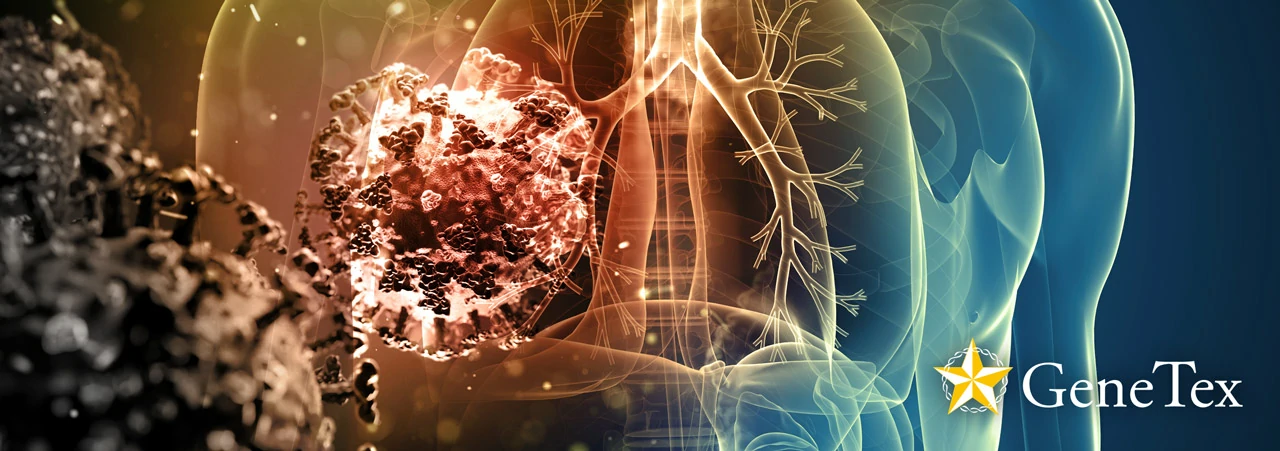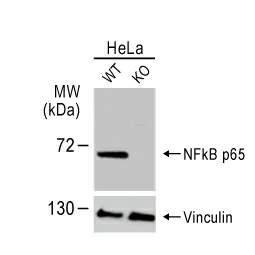TANK-binding kinase 1 (TBK1) and IκB kinase-ε (IKKε) represent a point of convergence for several pattern recognition receptor pathways that lead to the production of Type I interferons. Acting redundantly, these kinases are crucial components of the innate immune response to viruses and other pathogens mediated by RIG-I/MAVS, cGAS-STING, and TLR4-TRIF signaling. Nevertheless, anomalous or sustained activation of this signaling can result in destructive hyper-inflammatory states, with severe SARS-CoV-2 infection being a recent example. Thus, there has been significant interest in identifying agents that can mitigate the immunopathology associated with SARS-CoV-2 (or other virus) infection, with particular focus on TBK1/IKKε inhibition.
A new study by Ullah et al. compares the effects of different inhibitors of TBK1/IKKε on the inflammatory response after SARS-CoV-2 infection in mouse models (1). The authors first used in vitro techniques to show that the synthetic flavonoid Idronoxil (IDX) and the TBK1/IKKε kinase inhibitor MRT67307 (MRT) can inhibit downstream signaling by the STING, TRIF, and MAVS pathways. They then demonstrated that IDX acts by disrupting the formation of TBK1/IKKε signaling complexes (which distinguishes it from MRT) thereby highlighting its distinct mechanism-of-action. In addition, IDX was able to decrease both NF-κB- and IRF3-driven inflammatory signaling subsequent to STING/TLR3/TLR4/RIG-I activation. Moving on to an in vivo model, the authors utilized SARS-CoV-2-infected K18-hACE2 mice to reveal that IDX reduces viral-induced hyper-inflammation. Significantly, their results further argue that TBK1/IKKε inhibition is potentially a more effective approach to minimize SARS-CoV-2-triggered pulmonary hyper-inflammation than is direct STING inhibition. In summary, this study by Ullah et al. establishes a foundation for further work on IDX, or its derivative(s), as a new agent to lessen virus-induced hyper-inflammation.
GeneTex offers an extensive catalog of quality antibodies and reagents for research into SARS-CoV-2 and other viral infectious diseases, including the highly cited SARS-CoV / SARS-CoV-2 (COVID-19) Spike antibody [1A9] (GTX632604) referenced in the Ullah et al. study. For more information, please see the product data images below and visit www.genetex.com.
Highlighted Products
![SARS-CoV / SARS-CoV-2 (COVID-19) Spike antibody [1A9] (GTX632604) SARS-CoV / SARS-CoV-2 (COVID-19) Spike antibody [1A9] (GTX632604)](/upload/media/MarketingMaterial/Newsletter/2023/TBK1/landingPage_255x255_01.webp) |
SARS-CoV / SARS-CoV-2 (COVID-19) Spike antibody [1A9] (GTX632604)
|
   |
|
![SARS-CoV-2 (COVID-19) Nucleocapsid antibody [HL344] (GTX635679) SARS-CoV-2 (COVID-19) Nucleocapsid antibody [HL344] (GTX635679)](/upload/media/MarketingMaterial/Newsletter/2023/TBK1/landingPage_255x255_02.webp) |
SARS-CoV-2 (COVID-19) Nucleocapsid antibody [HL344] (GTX635679)
|
   |
|
|
|
|
|
|
|
|
Reference:
- Nat Commun. 2023 Sep 18;14(1):5666. doi: 10.1038/s41467-023-41381-9.

![SARS-CoV / SARS-CoV-2 (COVID-19) Spike antibody [1A9] (GTX632604) SARS-CoV / SARS-CoV-2 (COVID-19) Spike antibody [1A9] (GTX632604)](/upload/media/MarketingMaterial/Newsletter/2023/TBK1/landingPage_255x255_01.webp)
![SARS-CoV-2 (COVID-19) Nucleocapsid antibody [HL344] (GTX635679) SARS-CoV-2 (COVID-19) Nucleocapsid antibody [HL344] (GTX635679)](/upload/media/MarketingMaterial/Newsletter/2023/TBK1/landingPage_255x255_02.webp)
![IL6 antibody [HL2389] (GTX638598) IL6 antibody [HL2389] (GTX638598)](/upload/media/MarketingMaterial/Newsletter/2023/TBK1/landingPage_255x255_03.webp)
![TNF alpha antibody [HL1579] (GTX637058) TNF alpha antibody [HL1579] (GTX637058)](/upload/media/MarketingMaterial/Newsletter/2023/TBK1/landingPage_255x255_04.webp)

![ACE2 antibody [HL1092] (GTX636265) ACE2 antibody [HL1092] (GTX636265)](/upload/media/MarketingMaterial/Newsletter/2023/TBK1/landingPage_255x255_06.webp)